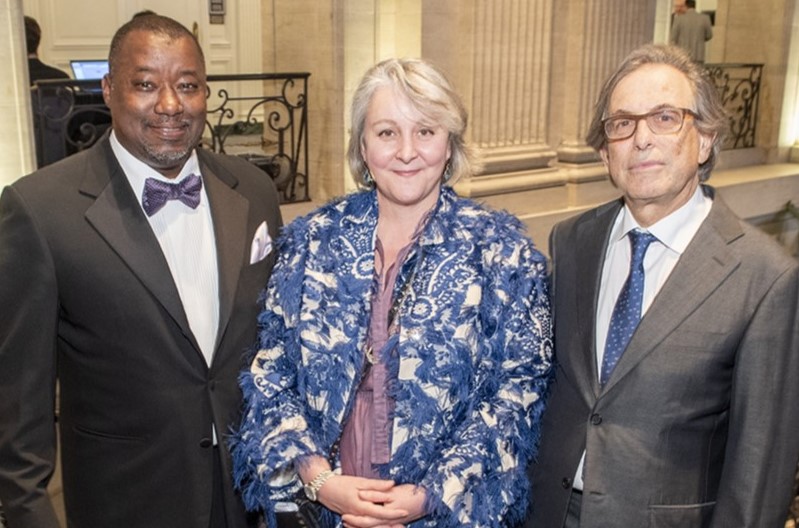Brain Tumor Benefit Celebrates Momentum Toward Breakthroughs

Even after 26 years as a practicing neurosurgeon, it is still challenging for James P. Chandler, MD, to deliver the news to a patient that they have a brain tumor.
One of the toughest questions to answer, he said, is how long a patient can expect to live after receiving a cancer diagnosis. Early in his career, he would draw a bell curve and quote statistics to his patients to provide a data-driven estimate. Yet as years went by, his patients often defied the odds—surpassing survival expectations and even, sometimes, going on to live long and fulfilling lives.
Questions?
Ashley Lough
Senior Associate Director, Major Gifts, Feinberg
ashley.lough@northwestern.edu
312-503-0759
Access more photos from Minds Matter 2024
Save the date for Minds Matter 2025!
Friday, May 9, 2025
Learn more
Make a gift
At the annual Minds Matter benefit on May 10, Dr. Chandler, who serves as co-director of the Lou and Jean Malnati Brain Tumor Institute (MBTI) of the Robert H. Lurie Comprehensive Cancer Center of Northwestern University at Northwestern Memorial Hospital, told attendees: “In my view, the worst thing we can do as providers is to strip patients of hope. I don’t give statistics, now, because your support has allowed our patients to live better and to live longer."
More than 325 friends and philanthropists attended this year’s Minds Matter benefit, held at The Hilton Chicago. Together, they raised more than $550,000 to support brain tumor research and patient care at MBTI, which admits more than 3,000 new brain tumor patients and performs more than 700 brain tumor surgeries every year.
Today, the challenges brought by brain and spinal tumor diagnoses affect more than 700,000 people nationally—as well as their loved ones. MBTI scientists continue to publish leading research, working hard to discover and develop cures for even the rarest brain tumors.
This year, MBTI investigators discovered a new mechanism in which cancer-associated fibroblasts mediate immune suppression in gliomas, an exciting turn that may inform future immunotherapy strategies for patients who don’t respond to standard treatment options. Scientists at MBTI and at UC San Francisco, in collaboration with 10 other medical centers, found a highly accurate way to predict the best treatment for patients with meningioma based on patterns of gene expression in their tumors. And, a clinical trial showed promising results for an experimental drug that may help some patients with diffuse midline gliomas, a rare type of brain tumor.
"Every individual in this room has made a difference,” Dr. Chandler said.